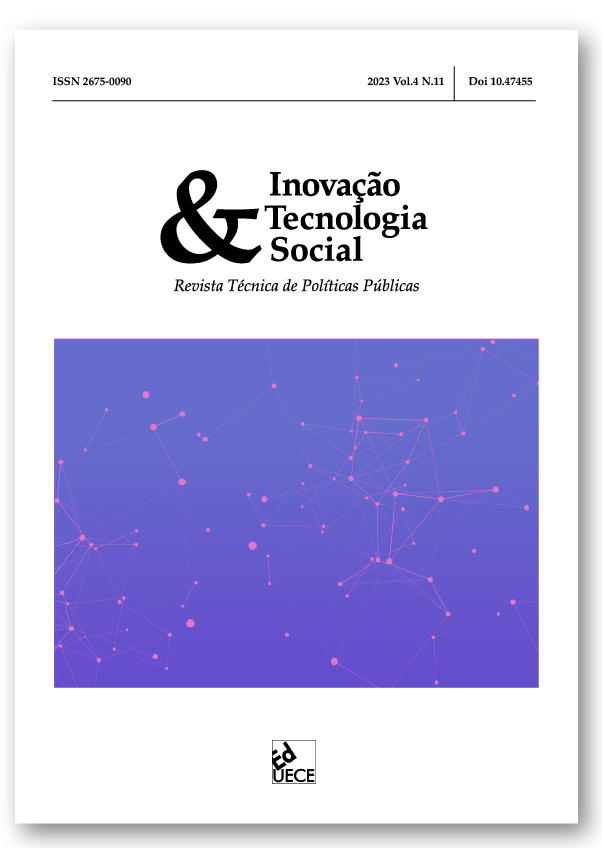A nova Lei de Organização Judiciária do Estado do Ceará à Luz da Cidadania Participativa:
o caso do município de paramoti
DOI:
https://doi.org/10.47455/2675-0090.2023.5.11.10750Keywords:
new law of judicial organization of ceará, participation, citizenship, municipality of paramotiAbstract
This article is an excerpt from my master's dissertation entitled: The law of extinction of judicial districts in Ceará: the case of the municipality of Paramoti, however, we made some notes in order to analyze the new law of judicial organization of the state of Ceará to the light of Participation and Citizenship with a focus on access to justice for inland populations. The respective law provides for the judicial organization of the State of Ceará, comprising the structure and functioning of the Judiciary and its auxiliary services. With the unpopular name of “law for the extinction of districts”, its main focus was the extinction of the districts of smaller municipalities, being the responsibility for the access to justice of these populations, acquitted by medium or large municipalities. From these initial data, it is important to make an analysis of the emancipation of citizens, as subjects endowed with participatory consciousness in the directions of society, seeking some modern concepts of renowned authors on the subject, situating the interior populations, being these understood as the real ones impacted. for the implementation of this new law in the state of Ceará. Therefore, we will focus, in this article, on the bias of participation and hearing of these subjects in the municipality of Paramoti.
References
BENEVIDES, Maria Victoria de Mesquita. Cidadania e Democracia. Revista Lua Nova, São Paulo, nº 33, 1994, p. 5-16. Disponível em: < https://www.scielo.br/pdf/ln/n33/a02n33.pdf>. Acesso em 15 abr 2021.
CEARÁ, 2017. Lei n° 16.397/17: dispõe sobre a organização judiciária do estado do Ceará. Disponível em: <https://www2.al.ce.gov.br/legislativo/legislacao5/leis2017/16 397.htm>. Acesso em: 13 abr 2021.
DEMO, Pedro. Política Pública de Direitos Humanos. Brasília, Universidade de Brasília, 2001. Disponível em: <https://docs.google.com/document /pub?id=1U2Ugfyhhv7qhlWOWJu1LC5-wz6pv_VMPTmRZHA5z2DM>. Acesso em 15 abr 2021.
GOHN, Maria da Glória. Gestão Pública e os Conselhos: revisitando a participação na esfera institucional. Revista de Estudos e Pesquisas sobre as Américas, v.10, n.3, 2016 ISSN: 1984-1639. Disponível em: < https://periodicos.unb.br/index.php/repam/article/view/14931/13252>. Acesso em 21 abr 2021.
GORCZEVSKI, Clovis; TAUCHEN, Gionara. Educação em Direitos Humanos: para uma cultura de paz. Revista Educação, Porto Alegre, v.31, n.1, p. 66-74, jan/abr, 2008. Disponível em: <http://www.dhnet.org.br/educar/textos/gorczevski_edh_cultura_paz.pdf>. Acesso em 17 abr 2021.
HOOKS, bell. Teoria Feminista: da margem ao centro. Tradução de Rainer Patriota. São Paulo: Perspectiva, 2019.
MOTA, Marcelo. Trabalho e Vitórias: nossa luta continua contra a extinção de comarcas. Fortaleza/CE, 2017. Disponível em: <http://oabce.org.br/2017/10/artigo-trabalho-e-vitorias-nossa-luta-continua-contra-a-extincao-de-comarcas/>. Acesso em: 13 abr 2021.



